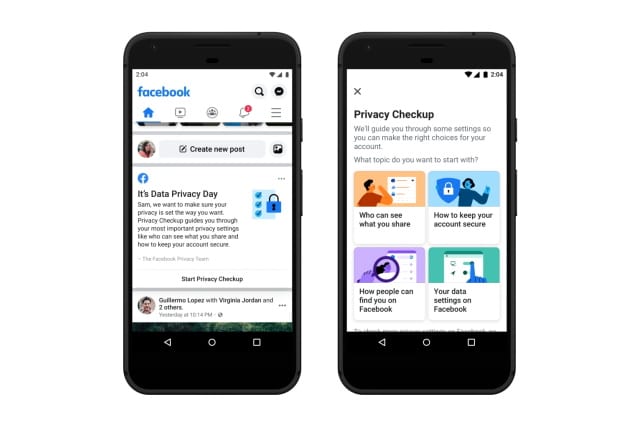
Facebook promises to give users more control over their privacy... again
Today is Data Privacy Day, and Facebook is using the occasion to try to convince its users that it cares about their privacy.
The social network says that it recognizes there is a lot of work to do to improve privacy protections, but that's not going to stop the company from trying to make it seem as though it doesn't represent a massive invasion of privacy. As part of its latest PR campaign, Facebook will encourage users to review their privacy settings as well as launching the Off-Facebook Activity tool globally.

Businesses gain from strong data privacy practices
Data privacy is very much in people's minds at the moment with the introduction of CCPA and other legislation around the world.
Businesses can sometimes see privacy regulations as a necessary evil that they have to comply with, but new data from Cisco reveals growing, tangible benefits for businesses that adopt strong privacy practices.
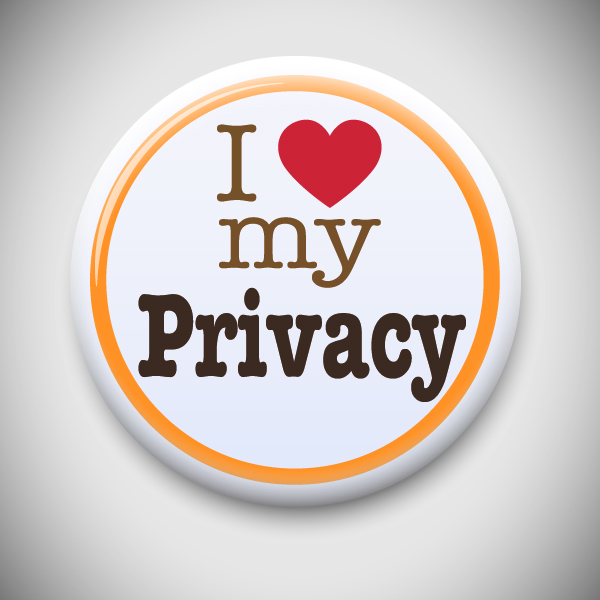
The perils of choosing convenience over privacy: When is it not worth it?
From the lightbulb and telephone to smartphones, the advanced technology of the day has always been lauded as a way to make peoples’ lives easier. But while today’s technology makes it possible to pay that electricity bill from your phone, it has also opened up privacy concerns that were unimaginable even ten years ago. In that decade, it is reported that more than 4 billion records have been stolen and 15 of the largest data breaches in history have occurred. Has technology marketed as a consumer convenience contributed to these breaches?
While George Orwell presented a dire picture of "big brother," today’s society certainly seems willing to embrace technologies that are always watching, listening and capitalizing on personal data shared in our daily lives. But what’s the true cost of choosing convenience over privacy? Let’s look at how technology has driven privacy complacency for the sake of convenience and how it has changed the way people think about and safeguard their information.
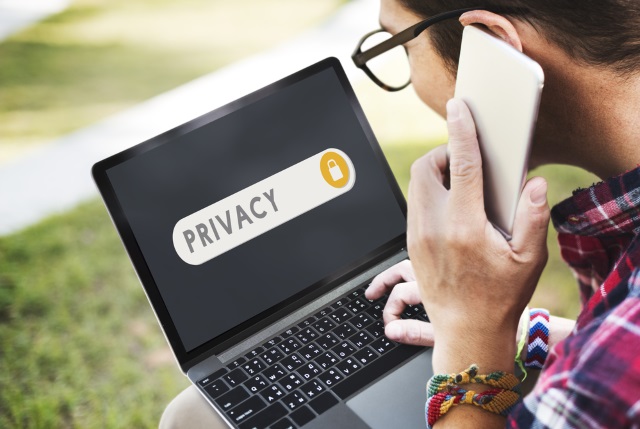
How CCPA will impact on enterprises and individuals [Q&A]
With the California Consumer Privacy Act (CCPA) having come into force at the beginning of the year, and Data Privacy Day coming up next week, privacy is very much in the news at the moment.
But how much of an impact will the new legislation have? And what do organizations need to do to make sure they don't lose consumer trust? We spoke to Chad McDonald, VP of customer experience at Arxan to find out more.
Google researchers reveal flaws in Safari that could be exploited to track users
Apple's Safari web browser was found to have multiple security flaws that allowed for user's online activity to be tracked, say Google researchers.
In a yet-to-be-published paper, the researchers reveal issues in a Safari feature which is actually supposed to increase user privacy. The Intelligent Tracking Prevention (ITP) feature found in the iOS, iPadOS and macOS version of the browser is meant to block tracking, but vulnerabilities mean that third parties could have accessed sensitive information about users' browsing habits.

Microsoft exposed 250 million customer service and support records in massive privacy blunder
A new report reveals how Microsoft exposed nearly 250 million Customer Service and Support records online late last year.
The security research team at Comparitech discovered five servers, each of which contained the same 250 million logs of conversations with Microsoft support agents and customers. The records, which spanned 2005 to December 2019, were accessible to anyone with internet access; no password protection or encryption was used.

Fake 'compensation' scheme exploits fears of data leaks
A new online fraud scheme is designed to trick people into thinking they are owed compensation for data leaks only to scam them out of cash.
Researchers at Kaspersky uncovered the scam which tries to get users to purchase 'temporary US social security numbers' at a cost of around $9 each. Victims have been found in Russia, Algeria, Egypt and the UAE, as well as other countries.

Why consumers must adopt a 'zero trust' approach to security [Q&A]
A lot has been written about the consumerization of IT, but when it comes to personal security Josh Wyatt, VP of global services engagement at Optiv Security, believes consumers would be well served to take a page from the corporate cybersecurity playbook and adopt a 'zero trust' security strategy.
We recently spoke with Josh to find out how zero trust security can help consumers defend against cyberattacks, what types of threats we need to be aware of, and how this all relates to the business world.

Why secure data exchange is vital for the fintech industry [Q&A]
Over the past few years, we've seen a surge in popularity for both consumer fintech apps, as well as fintech services for businesses.
This shift in the financial services ecosystem has empowered users to take greater control of their financial lives, equipping them with tools to better understand how and where they spend their money, increase their credit scores, prepare taxes, aggregate disparate financial and investment accounts, among many other applications.

Firefox 72 will let users delete data the browser collects about them
As we entered 2020, the California Consumer Privacy Act (CCPA) came into force, giving residents of California GDPR-like rights and protection. One of the rights afforded to people by the new law is to request that companies delete their user-specific data.
To comply with CCPA, Mozilla has announced that Firefox 72 -- due for release next week -- will include a new option that enables users to request the deletion of desktop telemetry. Although CCPA is only applicable in California, the new setting will be made available to Firefox users around the world.

ProtonMail's ProtonCalendar beta is the 'first fully encrypted calendar app'
Privacy and security are the guiding principles of ProtonMail, and now the company is expanding beyond email. The company has launched a beta version of ProtonCalendar, a privacy-focused alternative to Google Calendar.
ProtonMail claims that this is the "first fully encrypted calendar app", and says it offers a viable alternative to the companies (i.e. Google) that "companies snoop on your calendar and use that information to inform their advertising".
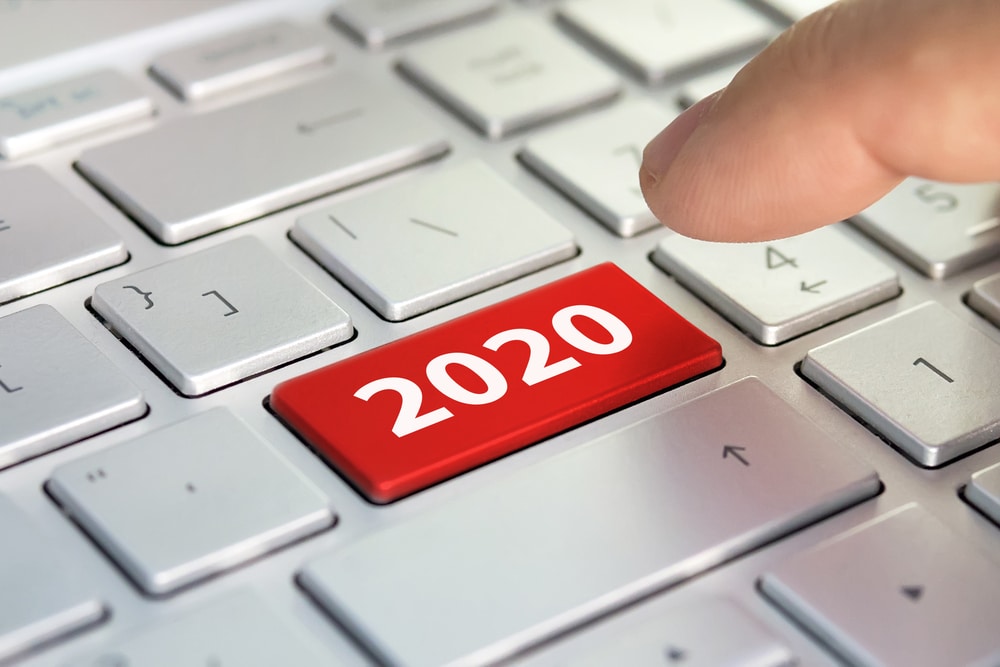
Compliance struggles and more legislation -- privacy and data predictions for 2020
With the California Consumer Privacy Act (CCPA) set to come into force in January, privacy and how companies use data is set to be one of the big themes of 2020. What do some of the industry’s leading figures think this will mean?
Peter Reinhardt, CEO and co-founder of Segment believes, "Though the GDPR roll-out should have given American companies a good taste of what was to come, it's still likely that most will do the bare minimum to comply with the CCPA until the US government starts enforcing it in 2020.

30 percent of Americans not confident they could spot a machine voice pretending to be human
With deepfake voice fraud an increasing threat, new research shows that 30 percent of Americans are not confident they would be able to detect the difference between a computer generated voice and a human one.
The study from ID R&D, a provider of AI-based biometrics and voice and face anti-spoofing technologies, shows only just over a third (36 percent) are confident they could spot a fake.

Financial services companies over confident about protecting data
Financial services business tend to be attacked more than those in any other sector, but a new study finds that 75 percent of respondents in this industry are over confident in their data management practices.
A worrying 24 percent of respondents to Integris Software's 2019 FinServ Data Privacy Maturity Study only update their personal data inventory once a year. Even more concerning, 13 percent only inventory sensitive data when audited or in response to regulation requests.
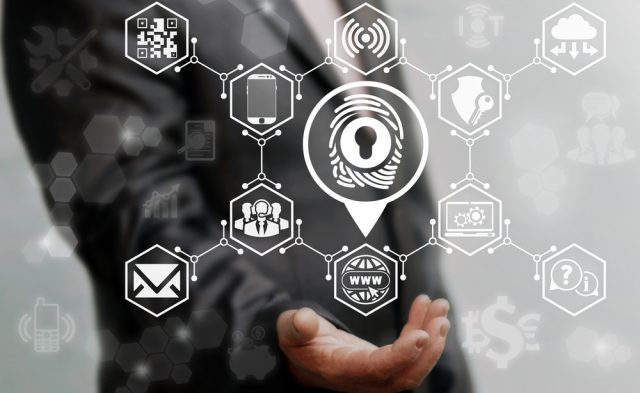
Why businesses need an omni-channel approach to protecting customer data [Q&A]
In the retail sector particularly the line between online and offline worlds is increasingly blurred. But how can businesses protect their customer data effectively in this world?
We spoke to, Gary Barnett, CEO of secure payment systems specialist Semafone to discuss this, the effect of the upcoming CCPA legislation and more.
